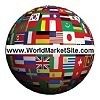Consumer goods are tangible products purchased by individuals or households for personal use or consumption. They encompass a wide range of items, including food and beverages, clothing, electronics, household appliances, personal care products, furniture, and more.
These goods are distinct from industrial goods, which are purchased by businesses for further production or resale. Categorized based on their durability and frequency of purchase, consumer goods include fast-moving consumer goods (FMCG) and durable consumer goods.
Fast-moving consumer goods (FMCG), also known as consumer packaged goods (CPG), are products with a relatively short shelf life and high turnover rate. These goods are consumed frequently and include items such as food products, toiletries, household cleaning supplies, and over-the-counter medications.
FMCG are characterized by their low-cost nature, widespread availability, and constant demand. Examples of FMCG include fresh produce, packaged snacks, toiletries like toothpaste and shampoo, laundry detergent, and pain relievers.
On the other hand, durable consumer goods are products designed to last for an extended period and are not purchased as frequently as FMCG. These goods often require a higher initial investment but offer long-term utility and functionality.
Examples of durable consumer goods include electronics, household appliances, furniture, and automobiles. Electronics encompass devices such as smartphones, laptops, tablets, televisions, and digital cameras, while household appliances include refrigerators, washing machines, dishwashers, ovens, and vacuum cleaners.
Furniture items such as sofas, chairs, tables, beds, and cabinets furnish homes and workplaces, while automobiles provide transportation and include passenger cars, trucks, SUVs, and motorcycles. Luxury goods represent high-quality, prestigious products associated with superior craftsmanship, exclusivity, and high prices.
These goods are not essential for daily living but are sought after for their status, aesthetic appeal, and superior quality. Examples of luxury goods include designer apparel and accessories, fine jewelry and watches, high-end electronics, and exotic cars.
Designer apparel and accessories encompass clothing, handbags, shoes, jewelry, and eyewear from luxury fashion houses and high-end brands, while fine jewelry and watches are crafted from precious metals and gemstones.
High-end electronics include premium audio equipment, home entertainment systems, luxury smartphones, and other cutting-edge gadgets, while exotic cars are high-performance vehicles known for their superior engineering and exclusivity.
Read Also: Shop Pay: The Essential Guide to Paying Your Bills
The Impact of Consumer Goods on the Economy

Consumer goods play a crucial role in driving economic activity and shaping the overall health of the economy. As tangible products purchased for personal use or consumption, consumer goods encompass a wide range of items that individuals or households rely on for their daily needs and preferences. From basic necessities like food and clothing to luxury items such as electronics and automobiles, consumer goods contribute significantly to economic growth, employment, and consumer welfare.
1. Contribution to GDP: Consumer spending is a key driver of economic growth and is a significant component of gross domestic product (GDP). GDP measures the total value of all goods and services produced within a country’s borders over a specific period. Consumer spending accounts for a substantial portion of GDP, reflecting the demand for consumer goods and services in the economy.
As consumers purchase goods and services, they stimulate economic activity, create demand for products, and generate revenue for businesses. Consumer spending drives economic expansion, fuels investment, and supports job creation across various industries.
2. Employment Opportunities: The consumer goods industry is a major source of employment, providing jobs for millions of people worldwide. From manufacturing and distribution to retail and marketing, consumer goods companies employ a diverse workforce involved in various stages of the supply chain. Jobs in the consumer goods sector range from production line workers and warehouse staff to sales associates and marketing professionals.
The industry also supports indirect employment in related sectors, such as transportation, logistics, and advertising. Employment opportunities in the consumer goods industry contribute to income generation, workforce participation, and economic stability, enhancing overall prosperity and well-being.
3. Business Investment and Innovation: Consumer goods companies invest heavily in research, development, and innovation to meet evolving consumer needs and preferences. Innovation drives product differentiation, quality improvement, and technological advancements, enabling companies to gain a competitive edge in the marketplace.
Investments in innovation contribute to product diversification, brand loyalty, and market expansion, driving revenue growth and profitability. Moreover, innovation fosters creativity, entrepreneurship, and industry competitiveness, spurring economic dynamism and long-term sustainability. By continuously innovating and adapting to changing market trends, consumer goods companies stimulate economic growth, foster industry innovation, and enhance consumer welfare.
4. International Trade and Globalization: Consumer goods are traded globally, facilitating economic exchange and international commerce. Globalization has opened up new markets, expanded trade routes, and increased access to a wide range of consumer goods from around the world.
International trade enables countries to specialize in the production of certain goods, leverage comparative advantages, and benefit from economies of scale. It also promotes cross-border investment, technology transfer, and cultural exchange, fostering economic integration and cooperation among nations. Additionally, global trade agreements and trade liberalization policies have facilitated the flow of goods and services across borders, promoting economic development and prosperity.
5. Consumer Confidence and Spending Patterns: Consumer confidence plays a crucial role in driving consumer spending and economic growth. Confidence levels influence consumer behavior, purchasing decisions, and overall economic activity.
When consumers feel optimistic about the economy and their personal financial situation, they are more likely to increase spending on consumer goods and services. Conversely, a decline in consumer confidence can lead to reduced spending, decreased demand for goods, and economic slowdowns.
Consumer spending patterns also reflect changing preferences, lifestyle trends, and socioeconomic factors, shaping market demand and influencing business strategies. By monitoring consumer sentiment and spending patterns, policymakers, businesses, and investors can gain insights into economic conditions and make informed decisions.
6. Fiscal and Monetary Policy Implications: Consumer goods consumption has significant implications for fiscal and monetary policy. Government policymakers use fiscal measures such as taxation, subsidies, and public spending to influence consumer behavior and stimulate economic growth. Monetary policy tools, including interest rates and money supply, are employed by central banks to manage inflation, promote price stability, and support economic activity.
Consumer spending patterns and inflationary pressures influence policymakers’ decisions on interest rates, monetary stimulus, and fiscal stimulus measures. Moreover, government policies aimed at promoting consumer welfare, protecting consumer rights, and ensuring product safety contribute to a favorable business environment and consumer confidence.
Read Also: How to Use Yahoo Finance to Your Advantage
What Are The Leading Brands and Manufacturers of Consumer Goods

The consumer goods industry encompasses a vast array of brands and manufacturers that produce a diverse range of products for personal use or consumption. From household staples to luxury items, consumers encounter products from numerous companies in their daily lives these include:
1. Food and Beverage: In the food and beverage sector, several companies stand out as leading manufacturers of popular brands. Nestlé, headquartered in Switzerland, is one of the largest food and beverage companies globally, offering a wide range of products including dairy, confectionery, coffee, and bottled water.
The Coca-Cola Company, based in the United States, is a renowned beverage manufacturer known for its iconic soft drinks, including Coca-Cola, Diet Coke, and Sprite. Another notable player in this industry is PepsiCo, which produces a diverse portfolio of snacks and beverages under brands such as Pepsi, Lay’s, Doritos, and Gatorade.
2. Personal Care and Toiletries: In the personal care and toiletries sector, multinational corporations dominate the market with a plethora of well-known brands. Procter & Gamble (P&G) is a leading manufacturer of consumer goods, offering a wide range of personal care products, household cleaners, and grooming essentials.
P&G’s portfolio includes popular brands such as Gillette, Head & Shoulders, Olay, Pantene, and Crest. Unilever, another major player in this industry, produces a variety of beauty and personal care brands, including Dove, Axe, Sunsilk, Rexona, and Lux.
3. Household Cleaning and Hygiene: Household cleaning and hygiene products are essential for maintaining cleanliness and sanitation in homes and workplaces. Companies like Clorox and Reckitt Benckiser (RB) are prominent manufacturers of cleaning and disinfecting products.
Clorox, based in the United States, offers a wide range of cleaning supplies, including bleach, disinfectant wipes, and household cleaners under brands like Clorox, Pine-Sol, and Tilex. RB, headquartered in the United Kingdom, produces a diverse portfolio of hygiene and health products, including Lysol, Dettol, Air Wick, and Veet.
4. Electronics and Technology: In the electronics and technology sector, several multinational corporations lead the market with innovative products and cutting-edge technologies. Apple Inc., based in the United States, is renowned for its iconic consumer electronics, including the iPhone, iPad, Mac, and Apple Watch.
Samsung Electronics, headquartered in South Korea, is a global leader in consumer electronics, offering a wide range of products such as smartphones, televisions, home appliances, and semiconductor chips. Sony Corporation, based in Japan, is another major player in this industry, known for its consumer electronics, gaming consoles, and entertainment content.
5. Apparel and Fashion: In the apparel and fashion industry, numerous brands cater to diverse tastes and preferences, ranging from fast fashion to luxury labels. Fast fashion retailers such as Zara, H&M, and Uniqlo offer trendy and affordable clothing collections for men, women, and children. Luxury fashion houses like Louis Vuitton, Gucci, and Chanel specialize in high-end apparel, accessories, and leather goods targeted at affluent consumers seeking exclusivity and quality craftsmanship.
6. Automotive: In the automotive sector, leading manufacturers produce a wide range of vehicles, from compact cars to luxury automobiles. Toyota Motor Corporation, headquartered in Japan, is one of the largest automakers globally, known for its reliable and fuel-efficient vehicles.
Volkswagen Group, based in Germany, is another major player in the automotive industry, with popular brands such as Volkswagen, Audi, Porsche, and Lamborghini. American automakers like General Motors (GM) and Ford Motor Company have a strong presence in the market, offering a diverse lineup of cars, trucks, and SUVs.
The Major Companies in the Consumer Goods Industry

The consumer goods industry is a vast and diverse sector that encompasses a wide range of companies engaged in the production, distribution, and marketing of products for personal use or consumption. From household essentials to luxury items, consumer goods companies play a significant role in meeting the needs and preferences of consumers worldwide.
1. Procter & Gamble (P&G): Procter & Gamble, commonly known as P&G, is one of the largest and most influential companies in the consumer goods industry. Headquartered in Cincinnati, Ohio, USA, P&G produces a wide range of household and personal care products.
With a portfolio of well-known brands such as Gillette, Pampers, Tide, Crest, Pantene, and Olay, P&G has a global presence and serves millions of consumers across the globe. The company is known for its focus on innovation, quality, and marketing prowess, making it a leader in the consumer goods market.
2. Unilever: Unilever is another major player in the consumer goods industry, with a diverse portfolio of brands spanning food and beverages, personal care, and home care products. Headquartered in London, UK, and Rotterdam, Netherlands, Unilever’s brands include Dove, Knorr, Lipton, Axe, Hellmann’s, and Vaseline, among others.
The company is committed to sustainability and social responsibility, and its products are distributed in over 190 countries worldwide. Unilever’s focus on innovation, product development, and marketing has made it a household name around the world.
3. The Coca-Cola Company: The Coca-Cola Company is a global beverage giant and one of the most recognizable brands in the world. Headquartered in Atlanta, Georgia, USA, Coca-Cola produces a wide range of non-alcoholic beverages, including carbonated soft drinks, juices, water, and energy drinks.
With iconic brands such as Coca-Cola, Diet Coke, Fanta, Sprite, and Dasani, Coca-Cola has a dominant presence in the global beverage market. The company’s products are sold in over 200 countries, and its marketing campaigns are renowned for their creativity and effectiveness.
4. PepsiCo: PepsiCo is a leading multinational food and beverage company known for its diverse portfolio of brands. Headquartered in Purchase, New York, USA, PepsiCo’s brands include Pepsi, Lay’s, Gatorade, Tropicana, Doritos, and Quaker Oats, among others.
The company operates in over 200 countries and territories worldwide, offering a wide range of snacks, beverages, and food products. PepsiCo is committed to sustainability and environmental stewardship, and it continuously innovates to meet the changing needs and preferences of consumers.
5. Nestlé: Nestlé is a Swiss multinational food and beverage company and one of the largest consumer goods companies in the world. Headquartered in Vevey, Switzerland, Nestlé’s diverse portfolio includes brands such as Nescafé, KitKat, Maggi, Purina, Nespresso, and Haagen-Dazs, among others.
The company operates in over 180 countries and is known for its focus on nutrition, health, and wellness. Nestlé’s products span various categories, including coffee, chocolate, pet care, dairy, and confectionery, making it a household name worldwide.
6. Johnson & Johnson: Johnson & Johnson is a global healthcare company that produces a wide range of consumer health products, pharmaceuticals, and medical devices. Headquartered in New Brunswick, New Jersey, USA, Johnson & Johnson’s consumer health division manufactures brands such as Johnson’s Baby, Neutrogena, Aveeno, Listerine, Tylenol, and Band-Aid. The company is committed to improving the health and well-being of people around the world through its innovative products and initiatives.
7. Amazon: Amazon is a multinational technology company that has expanded its presence into various consumer goods categories through its e-commerce platform. Headquartered in Seattle, Washington, USA, Amazon offers a wide selection of products, including electronics, apparel, home goods, groceries, and personal care items. With its vast network of sellers and fulfillment centers, Amazon has become a dominant force in the retail industry, revolutionizing the way consumers shop for goods online.
8. Walmart: Walmart is a multinational retail corporation and one of the largest companies in the world by revenue. Headquartered in Bentonville, Arkansas, USA, Walmart operates a chain of hypermarkets, discount department stores, and grocery stores worldwide.
The company offers a wide range of consumer goods, including groceries, apparel, electronics, home goods, and personal care products. Walmart’s expansive network of stores and online presence makes it a leading destination for consumers seeking everyday essentials and value-priced goods.
Read Also: Healthy Snacks For Kids






